
Engaging local to global lessons make it fun to teach sustainability and community to elementary students.
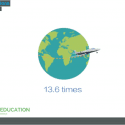
In this interactive math enrichment lesson, students develop a deeper understanding of large numbers by tackling riddles,...
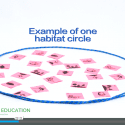
In this fun interactive activity, students role-play as plants or animals collecting vital habitat elements — water,...
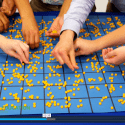
Students estimate population size by using math manipulatives on a grid models in this hands-on sampling activity...

In this hands-on environmental science and geography lesson, students engage with the interactive story “Who Polluted the...

In this interactive forest sustainability and environmental science simulation, students take on roles within a forest management...
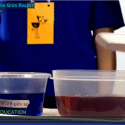
This quick and visual demonstration uses water and measuring cups to model how population increases when the...

This engaging population growth simulation helps students experience the changing pace of Earth’s population growth over the...
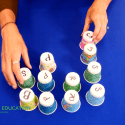
In this fun, game-like classroom activity, students take on the role of predatory animals competing for limited...
PopEd Impact
campuses
"The activities not only bring out important content, but they also provide real-world context for environmental, population and sustainability issues. They engage participants in very thought-provoking and critical-thinking discussions.”
Helen de la Maza, Environmental Educator, Irvine, CA

